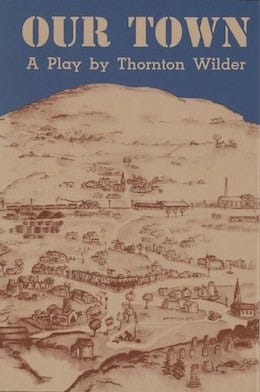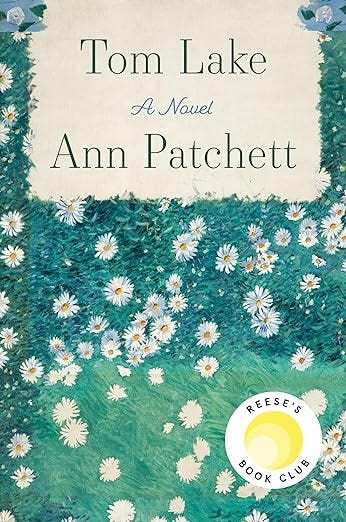What makes a book compelling? Join me in reading good books and honing the craft of writing.
Tom Lake, the title of Ann Patchett's novel, takes us to a cherry orchard in the Traverse City area of Michigan. The story begins with Lara narrating her actress life to her three adult daughters, before she became a mom and cherry grower. Patchett leads us from the present to the past through extensive flashbacks as the family rushes to get the crop picked.
Lara serendipitously became exposed to the inner workings of acting while working an audition in high school. She wondered what she would do with her life- be an English teacher, join the Peace Corps, be a veterinarian? Here is Lara telling how she watched the actors, with a transition from past to present:
. . . What I was seeing was nothing less than how to present myself in the world. Watching actors who had memorized their lines and been coached along for months was one thing, but seeing adults stumble and fail was something else entirely. The magic was identifying where each one went wrong . . . .
Watching those men recite the same lines so badly while polishing their glasses with giant white handkerchiefs really made me think about my life.
[***]
“Wait, wait, wait, you wanted to be a vet?” Maisie [one daughter] shakes her head. “You never wanted to be a vet. You never said that before.” Maisie will begin her third year of veterinary school in the fall, if there is in fact school in the fall.
Thus, the stage is set for how the story will unfold and we’re treated to meeting Lara’s daughters, each a distinctive personality. Reference is made to Tom Lake and we don’t know until about a third in who or what Tom Lake is. The offering made by Patchett is for us to join her daughters in listening how Lara went from acting to farming. She spices things with a fling with a now-famous actor, Peter. Spicy because Lara is married to Joe. Adding to the suspense, the oldest daughter, Emily, went through her teenage years believing Peter was her father instead of Joe.
Patchett drops in enough details to both relate to readers and give us a place we all want to go, both physical and familial.
The play Lara first works, and identifies with throughout her acting career, is Our Town, by Thornton Wilder, an existential play if there ever was one—why are we here? Written in 1938, during the Depression, the play is not a happy one. I think Patchett invokes Our Town to remind us the things in life don’t last.
The cover art is a surprising evocation. Showing daisies in bloom, one thinks of pastoral settings. Why daisies and not cherries on trees or in bowls? Cherries are what everyone on the farm lives and works for.
The daisies are in the cemetery on the farm. It’s where those tied to the farm but no longer alive are pushing up flowers. Even those from Lara’s acting days long to be buried there. Eternally surrounded by an idyllic life that isn’t so in reality.
This is the true value of Patchett’s flashbacks, using the experience of living to gain perspective of the past, all as we go through the toils of daily life. Patchett writes masterfully.
Still though, the story seemed incomplete. The daughters don’t absorb this perspective, even after hearing their mother’s history. As her story unfolds, Lara reveals an existential fork in the road not taken. The basis underlying Emily’s teen belief that Peter is her real father isn’t explained, relegating it to a wobbly plot crutch. Emily long ago gave up the belief, for reasons not well explained. When she and her sisters learn what happened, they remain oblivious to the consequences for them had Lara taken the other path.
The story is about knowing how everyone got to where they are, as the cherry trees endure the ephemeral plucking and shaking clean.
All the Best,
Geoff
If you enjoyed this post, please hit the heart “❤️” so others can find it. It’s at the bottom and at the top.







Cannot get enough of this book. First read was because I like Patchett. Second read was for craft and style. Third was audio book. I recommend audio sometimes. Seems to me the words come across differently. She's like an ear worm now. Hoping that much talent comes on to my pages.
Nice write up, Geoff. I was compelled to look up Our Town. It keeps coming up as clues in my crossword puzzle diet. There is a 1940 movie out there I'll try to watch. What I read about Our Town was that in addition to what you mentioned, every moment of life should be treasured. What a perspective. Hard to live up to. Maybe Lara does regret all her fantasies, and her kids don't want to listen for the underlying lesson. I think Mark Twain has a quote on listening to parents while young. But sounds like Emily doesn't need the lesson. She's working hard at something worthwhile and fulfilling. Laree's relatives are from Traverse City/Leelanau County. I messaged her uncle about the book. He read the book and went to hear her speak, but he felt, as other locals probably did, that the book did not capture the area.